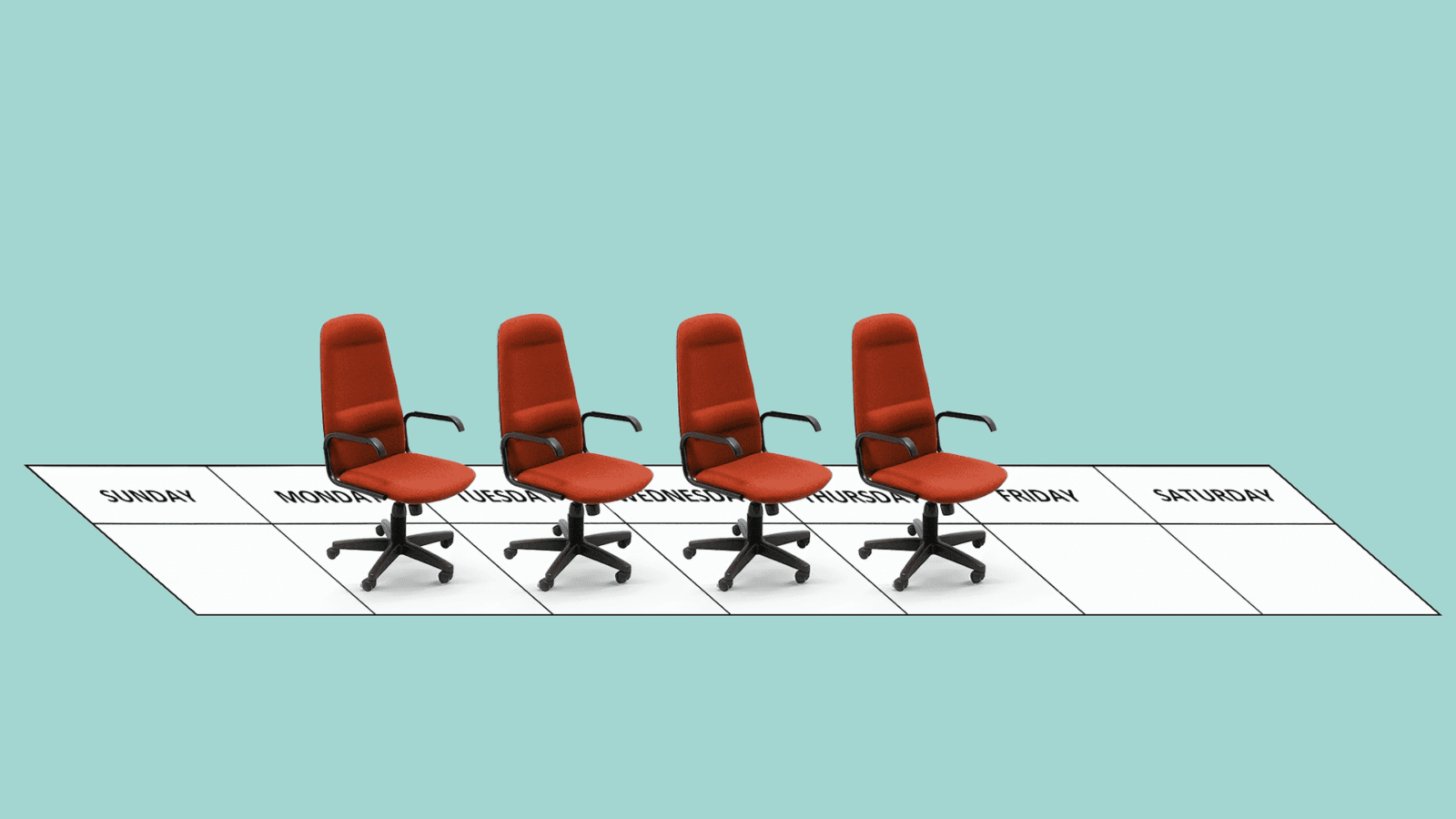The results of the world’s largest four-day workweek trial were finally released. The study, conducted by the nonprofit advocacy group 4 Day Week Global, was held over six months across 61 businesses in the U.K. The result: companies don’t want to stop. After six months, 92% of participating companies reported positive results and will maintain a four-day workweek. Researchers found that employees experienced a 71% decrease in burnout rate, a 60% increase in work-life balance, and overall higher productivity and performance. All 2,900 employees in the study worked 80% of their usual hours for the same pay. Employees reported better sleep, lower stress levels, and enhanced mental health. The U.S., Canada, and Iceland conducted similar studies with positive results, and more trials are in the works in Australia, Brazil, and elsewhere.
THE WALL STREET JOURNAL: After Testing Four-Day Week, Companies Say They Don’t Want to Stop
By Vanessa Fuhrmans; February 21, 2023
Want to try a four-day workweek? Put this on the boss’s desk.
A large majority of U.K. companies participating in a test of a four-day workweek said they would stick with it after logging sharp drops in worker turnover and absenteeism while largely maintaining productivity during the six-month study.
In one of the largest trials of a four-day week to date, 61 British businesses ranging from banks to fast-food restaurants to marketing agencies gave their 2,900 workers a paid day off a week to see whether they could get just as much done while working less, but more effectively. More than 90% said they would continue testing the shorter week, while 18 planned to make it permanent, according to a new report from the study’s organizers.
The idea of working less than the conventional 40 hours over five days a week has been discussed for decades. The concept has gained new momentum recently as employers and employees seek new and better ways to work. The Covid-19 era ushered in broader acceptance of remote and hybrid work arrangements. Now, some employers, as well as policy makers, are exploring whether a shorter workweek can improve employee well-being and loyalty.
“At the beginning, this was about pandemic burnout for a lot of employers. Now it’s more of a retention and recruitment issue for many of them,” said Juliet Schor, an economist and sociologist at Boston College. Her team helped conduct the study with the nonprofit advocacy group 4 Day Week Global; U.K.-based think tank Autonomy, which focuses on issues including the future of work and climate change; and researchers at Cambridge University.
Companies in the U.S. and Canada recently concluded a smaller pilot of a four-day week led by the U.K. study organizers, and similar trials are in the works in Australia, Brazil and elsewhere. Consumer-goods company Unilever PLC recently tested the concept in its New Zealand offices, while Spain’s government plans to pay companies to experiment with a four-day week. In a study in Iceland involving more than 2,500 employees across industries, researchers found most workers maintained or improved their productivity and reported reduced stress.
Widespread adoption faces a number of obstacles. Most companies that have experimented with a four-day week are small employers. Many larger companies haven’t embraced the concept. And at some companies trying four-day weeks, some workers have reported struggling to get everything done in that time.
In the U.K. study, which ran from June through November, most employees didn’t work more intensively, researchers say. Rather, they and their bosses sought to make work days more efficient with hacks such as cutting back on meetings and ensuring employees had more time to focus on completing tasks.
On a scale of 0 (very negative) to 10 (very positive), employers on average scored their productivity and performance over the six months at 7.5. A survey conducted halfway through the trial found 46% of companies said their business productivity had remained about the same, while 34% reported a slight improvement and 15% a significant improvement.
Meanwhile, 39% of employees said they were less stressed than before the pilot program started; about half reported no change. Nearly half observed improvement in mental health, and 37% also noted an improvement in physical health.
Claire Daniels, chief executive of Trio Media, a 13-employee digital-marketing agency based in Leeds, England, said she joined the trial to see whether a more effectively structured week could improve her business’s productivity. Before starting, she and her staff tracked and analyzed their workweek and concluded 20% of it was wasted in unessential meetings, business travel and other inefficiencies.
“So immediately, we knew we weren’t having to cram extra work in the four days,” she said.
Staggering everyone on Monday-Thursday and Tuesday-Friday schedules—with each employee having a partner to cover the day they were off—Ms. Daniels said she and her staff stopped holding marathon daily team meetings. And in longer meetings involving clients and multiple presentations, employees would drop in for portions and leave again, depending on how necessary their attendance was.
The hardest part, she said, was for staff to make sure they didn’t slip back into old work mind-sets or habits. On the whole, productivity was the same, or slightly improved, and revenue rose 47% compared with the year-earlier period, she said.
Ms. Daniels said she wants to continue the trial another six months before making a permanent change, “but I don’t see us going back to a typical five-days-a-week model.”
Photo: Getty; The Atlantic
